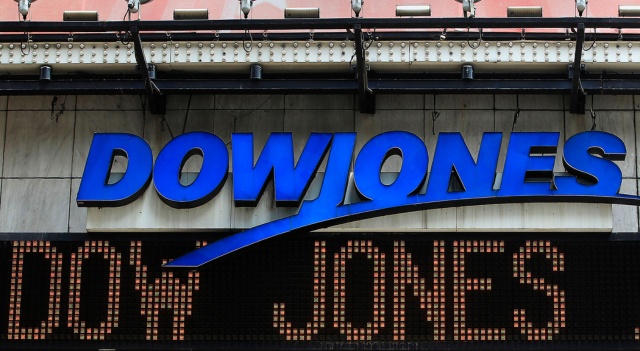U.S. stock markets are poised to open lower on Friday as futures for the major indexes signal a retreat, with investors bracing for renewed trade tensions following two days of gains.
The pullback comes in response to rising anxiety over President Donald Trump’s latest trade actions, which have refocused attention on his increasingly aggressive tariff strategy.
In a letter shared on Truth Social addressed to Canadian Prime Minister Mark Carney, Trump announced a 35% tariff on goods coming from Canada starting August 1. The move, according to Trump, was in part due to what he sees as Canada’s failure to curb fentanyl trafficking into the United States.
“If Canada works with me to stop the flow of Fentanyl, we will, perhaps, consider an adjustment to this letter,” Trump said.
The president also revealed in a “Meet the Press” interview with NBC News’ Kristen Welker that he intends to roll out broad tariffs—between 15% and 20%—on most U.S. trading partners. Trump further hinted that new tariff notifications are on the way for EU member states.
Despite these developments, overall market activity may remain limited due to the absence of high-impact U.S. economic data, leaving traders with little incentive to take big positions ahead of the weekend.
Market participants are also eyeing the beginning of corporate earnings season next week, when several major companies are expected to release quarterly results.
“The corporate reporting season begins in earnest next week with the big US banks. That will shift the focus to profits and outlook statements, giving valuable insight into how the business world is coping with a multitude of pressures,” said Dan Coatsworth, investment analyst at AJ Bell.
“Any corporate optimism is likely to prompt a tickertape parade on the markets as investors look for confirmation that tariff uncertainty hasn’t caused widespread damage to earnings,” he added.
On Thursday, stocks extended Wednesday’s strong rally, sending both the Nasdaq and S&P 500 to fresh record highs before paring gains toward the close. The Dow ended the day up 192.34 points, or 0.4%, at 44,650.64. The Nasdaq edged up 19.33 points, or 0.1%, to 20,630.66, while the S&P 500 rose 17.20 points, or 0.3%, to finish at 6,280.46.
The advance came despite Trump’s latest threats to ramp up tariffs across multiple sectors and nations. On Wednesday evening, he announced via Truth Social that copper imports will face a 50% tariff starting August 1.
He also unveiled additional correspondence to world leaders, including those of the Philippines, Brunei, Moldova, Algeria, Iraq, Libya, and Sri Lanka, expanding a campaign that earlier in the week saw similar letters sent to 14 other countries.
“Trump is throwing out numbers left, right and centre, and investors have begun to dismiss anything that isn’t set in stone,” said Coatsworth.
“So many of Trump’s decisions have either been rolled back, forgotten about, or kicked down the road,” he continued. “For investors, that means a shift in focus back to economic data and corporate news flow as key drivers for markets.”
Meanwhile, the latest figures from the U.S. Labor Department showed a slight dip in initial unemployment claims. The number of people filing for jobless benefits fell to 227,000 for the week ending July 5, down from the previous week’s revised total of 232,000.
Economists had expected a small increase to 235,000, based on the previously reported 233,000 figure.
On the sector front, airline stocks saw a sharp rally, pushing the NYSE Arca Airline Index up 7.8%—its best level in four months. Delta Air Lines (NYSE:DAL) surged 12% after topping earnings estimates for Q2 and reaffirming its full-year profit guidance.
Steel shares also posted solid gains, with the NYSE Arca Steel Index climbing 1.8%. Other notable gainers included biotech, energy, and financial names, while software and networking stocks lagged behind.
This content is for informational purposes only and does not constitute financial, investment, or other professional advice. It should not be considered a recommendation to buy or sell any securities or financial instruments. All investments involve risk, including the potential loss of principal. Past performance is not indicative of future results. You should conduct your own research and consult with a qualified financial advisor before making any investment decisions.
